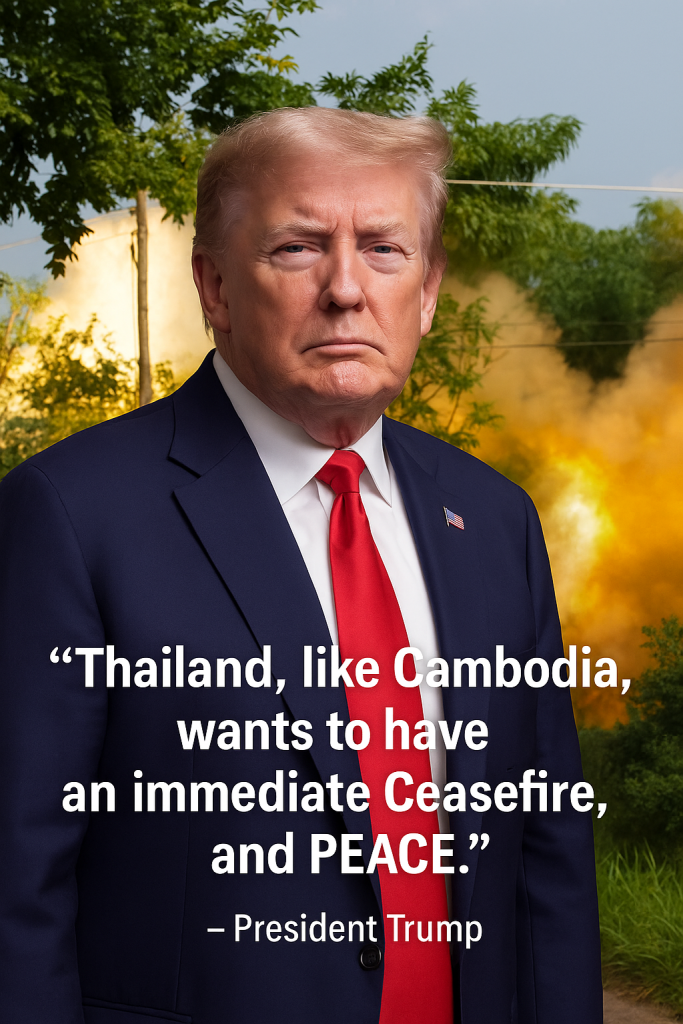Former U.S. President Donald J. Trump has publicly called for an immediate end to the violent clashes between Cambodian and Thai forces that have recently erupted along their shared border. The conflict, which has already claimed dozens of lives and displaced thousands, has raised international concern over stability in this sensitive part of Southeast Asia.
In a statement released earlier this week, Trump emphasized the urgent need for both countries to cease hostilities and pursue a peaceful resolution. “Thailand, like Cambodia, wants to have an immediate ceasefire, and PEACE,” the former president declared, urging leaders in Phnom Penh and Bangkok to prioritize diplomatic channels over armed confrontation.
The border dispute, reignited in late March 2024, centers around contested territory adjacent to a sacred temple complex, a site holding deep historical and cultural significance for both nations. Tensions escalated after troops from each side engaged in sporadic skirmishes, which intensified into days of sustained fighting. This has resulted in at least 30 confirmed fatalities, with many civilians caught in the crossfire and thousands more forced to evacuate vulnerable border communities.
Humanitarian agencies are now scrambling to provide support for displaced families, who face shortages in food, medical care, and shelter. The recent violence has also disrupted local economies, and threatens to destabilize the broader region, raising alarms among Southeast Asian neighbors and international observers alike.
President Trump’s remarks came amid growing international calls for restraint. Earlier, diplomatic representatives from multiple countries urged Cambodia and Thailand to observe a ceasefire and resume peaceful negotiations. The former U.S. president’s public intervention reflects a heightened global desire to see the conflict resolved before further loss of life or escalation occurs.
Despite periodic ceasefires declared by military commanders on both sides, reports suggest that sporadic clashes have continued, complicating efforts to restore normalcy. Analysts point to the deep-rooted historical tensions, nationalist sentiments, and recent political shifts within each country as factors that have impeded a lasting agreement.
Experts emphasize the critical importance of the Mekong subregion remaining peaceful, given its role as a vital trade and transportation corridor in Southeast Asia. The conflict threatens to destabilize economic growth and cross-border cooperation essential for regional development.
Calls for international mediation have been gaining traction, with suggestions that Southeast Asian regional organizations and global powers could facilitate dialogue and confidence-building measures to de-escalate hostilities. Trump’s direct appeal adds political weight to these efforts, underscoring the urgency of ending fighting and prioritizing humanitarian relief for affected populations.
As of late April 2024, both Cambodia and Thailand have reiterated their commitment to dialogue but maintain strong claims over the disputed territory, making the path to peace complex and fragile. The coming weeks will be crucial in determining whether the two neighbors can break the cycle of violence and foster lasting stability in this border region.
For now, millions watch with hope as the international community rallies behind efforts to bring an end to the bloodshed, heeding the call for peace echoed by leaders like Donald Trump and others invested in Southeast Asia’s future.



